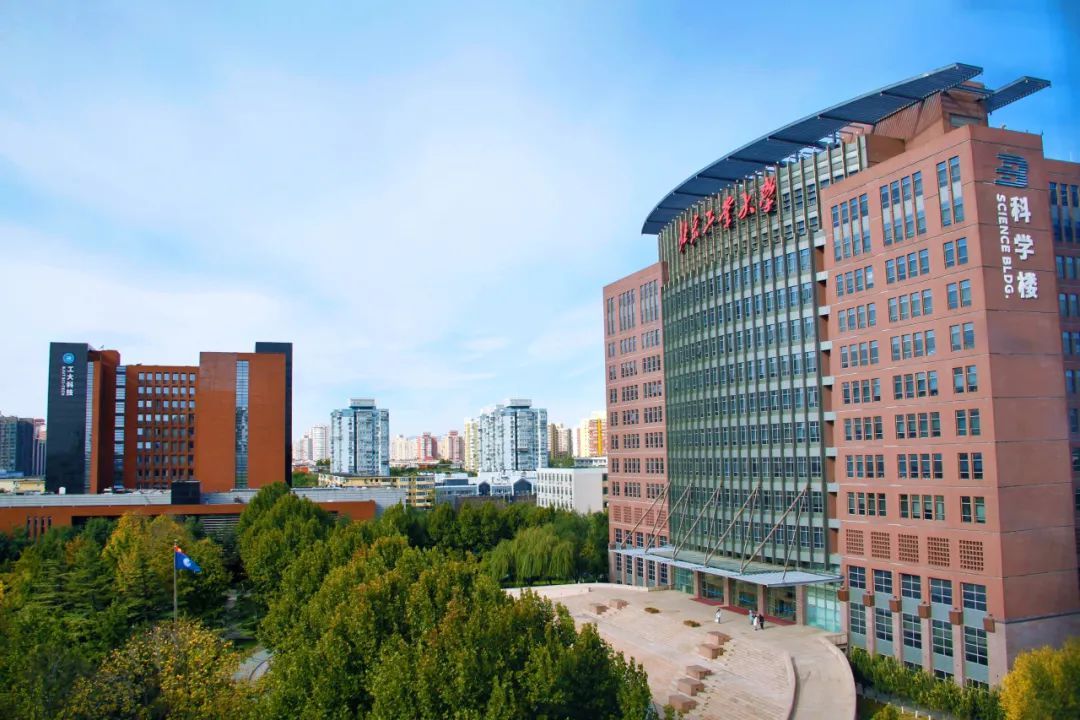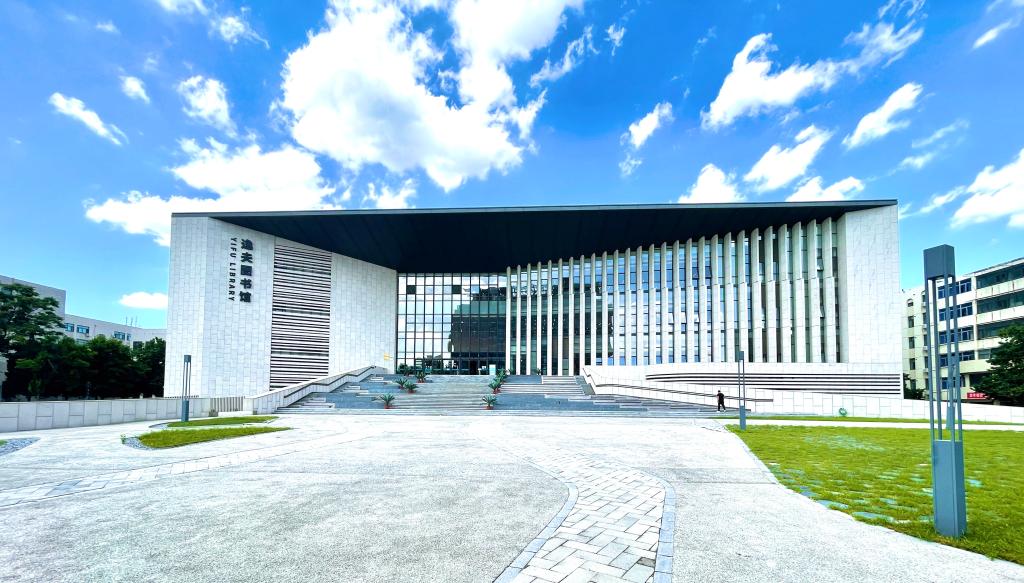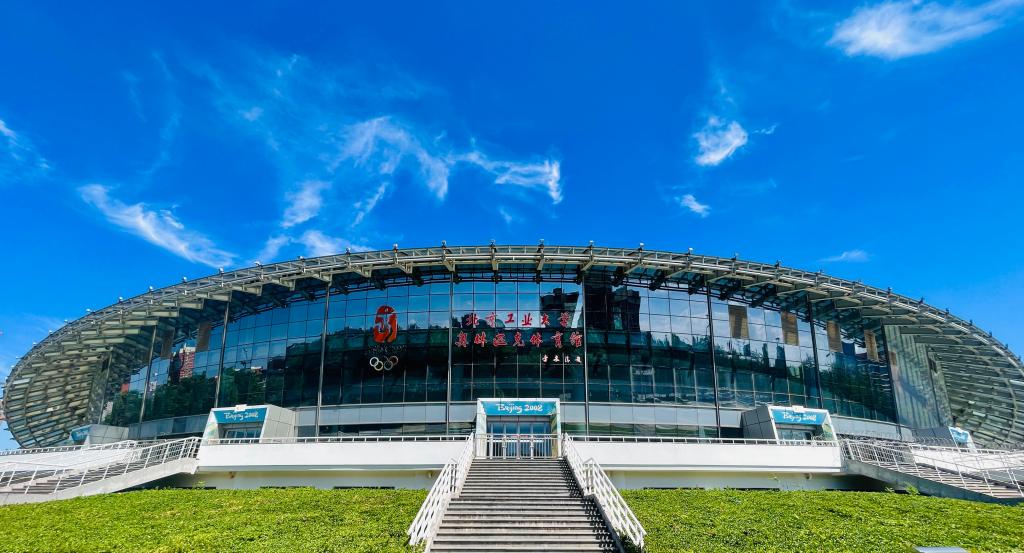- Academics+
- Colleges & Institutes
- Undergraduate
- Graduate
- International Education
- FACULTY LISTINGS/SUPERVISORS INFORMATION
- College of Architecture and Civil Engineering
- College of Architecture and Urban Planning (CAUP)
- College of Art and Design
- College of Chemistry and Life Science
- College of Computer Science
- College of Economics and Management
- College of Environmental Science and Engineering
- College of Foreign Languages
- College of Marxism
- College of Materials Science and Engineering
- College of Mechanical and Energy Engineering
- College of Metropolitan Transportation
- School of Information Science and Technology
- School of Mathematics Statistics and Mechanics
- School of Physics and Optoelectronic Engineering
- School of Sociology
- Admission+
- Research+
- Global+
- Life @ BJUT+
- About+
In 1960, Beijing University of Technology (BJUT) was established in the southeast industrial area of Beijing, bearing the mission of providing the capital city with engineering talents to serve the new high-level, high-precision and advanced industrial system. Following the principle of "Rooted in Beijing, Serving Beijing, Inspiring China and Embracing the world", BJUT has pioneered a development path with its own characteristics.
In 1981, BJUT was approved as one of the first universities in China to confer Master's Degrees. In 1985, BJUT was approved to confer Doctoral Degrees. In 1996, BJUT entered the list of key universities in the national "211 Project". In 2008, BJUT successfully held the badminton and gymnastics events of the Beijing Olympic Games. In 2017, BJUT officially entered the list of universities in the national "Double First-Class" Initiative.

Today, BJUT has developed into a high-level multi-disciplinary research university providing programs in science, engineering, economics, management, literature, law, art and education, with engineering as a core focus. Currently, BJUT has 3 national key disciplines, 21 Beijing municipal key disciplines, 70 undergraduate programs, 33 first category master's degree programs, 22 first category doctoral degree programs and 19 post-doctoral research stations. 10 disciplines entered Top 500 of the 2020 QS World University Rankings by Subject. 11 disciplines including Engineering, Materials Science, Chemistry, Environment and Ecology, Computer Science, Biology and Biochemistry, General Social Sciences, Physics, Earth Science, Clinical Medicine and Mathematics entered Top 1% of the ESI Rankings, among which Engineering and Materials Science ranked Top 1‰.
Centered on the task of providing high-level innovative talents for the economic and social development of Beijing, BJUT strives to cultivate first-class talents with an exploring spirit, innovative spirit and global vision by actively exploring innovative talent training models, such as the Fan Gongxiu Honors College, Beijing-Dublin International College. Currently, BJUT has 25,846 students, including over 12,261 postgraduate students. Since its establishment, BJUT has cultivated over 190,000 graduates who are now playing their important roles of building the future in all walks of life. In the meanwhile, BJUT is home to 278 international students.

BJUT steadily promotes the quality education by building over 10 high-level student art troupes and sports teams, actively developing the student societies and extensively organizing artistic, physical and cultural activities. Art troupes of BJUT have won many awards including multiple-time First Prizes in the National College Students' Art Exhibition and Performance. BJUT Student Choir has been the undertaker of the Beijing College Students' New Year Concert at the National Center for the Performing Arts for many years. High-level sports teams of BJUT such as the Badminton Team have won many awards in all multiple competitions, including Champion of the 2018 Thomas Cup Badminton and Champion of the 2017 Badminton Asia Championships.
BJUT adheres to the principle of "strengthening the university through talents". By introducing and cultivating talents at the same time, BJUT has fostered a sound mechanism and a favourable environment for the introduction and cultivation of talents, and gradually built a large top-notch talent team with reasonable structure and high quality. Currently, BJUT has over 3,271 faculty and staff including 832 doctoral supervisors and 1,840 master supervisors. BJUT has 9 members of the Chinese Academy of Sciences and the Chinese Academy of Engineering, and 1 member of the Chinese Academy of Social Sciences.
Nowadays, BJUT aims to serve the development strategies of China and the major demands of Beijing with its prominent advantages in scientific research and gradually build an innovative eco-system with an in-depth integration of government, industry, university, research and application. Currently, BJUT has two National Research Bases. BJUT has won 38 National Science and Technology Awards from 2006 to 2024.

In the process of serving Beijing's "Four Centers" construction, BJUT has developed distinct features in the fields of urban infrastructure construction, pollution control, traffic management and high-level high-precision advanced information technology et cetera. The scientific results of BJUT have been used in many major projects including the environmental protection mechanism, the traffic operation & management during the Beijing Olympic Games, the construction of Beijing Daxing International Airport and the National Stadium and the anti-seismic design of the Beijing subway system. From BJUT, many research breakthroughs have been produced and transformed to serve Beijing, influence China and lead the future.
BJUT has establish internationalization as one of its three major strategies and has been actively accelerating its internationalization process and improving its capability of international school running, with a steady rise in its global reputation and influence. BJUT has established partnerships with over 200 universities and institutions in 39 countries and regions. In 2008, BJUT and Opole University of Technology co-established its own Confucius Institute in Poland. In 2012, BJUT and University College Dublin in Ireland jointly established the Beijing-Dublin International College at BJUT. In 2017, together with 23 universities from China and Poland, BJUT co-pioneered the Belt & Road Sino-Polish University Consortium. In 2024, nearly 700 students participated in BJUT's study abroad programs.
A new era brings new missions. For decades, BJUT people have stayed true to its mission and forged ahead through all difficult times. Standing on the new starting point, upholding the motto of "Persistent Striving the Principle, Pursuit of Innovation the Path" and seizing the opportunity of the national "Double First-Class" construction plan, with the goal of building a world-class university, BJUT is ready to write brilliant new chapters as we chase our centenary dream.




